What to Know About Depression in the Elderly
Despite what you may have heard,
depression is not a normal part of getting older.
While our mortality may be difficult to face, healthy emotional responses do not look like prolonged depressed moods that may significantly alter daily life.
Nonetheless, depression is a treatable medical condition. Recognizing its signs and providing effective treatments to elderly patients can significantly improve their quality of life. At our Boynton Beach assisted living facility, we provide the help that our elderly residents need for both physical and mental ailments.
Causes of Depression in Senior Citizens
Sometimes the cause of depression is not obvious. Perhaps the patient is holding on to regrets, or unhealthy coping mechanisms are worsening their depression symptoms. For example, a bad drinking or smoking habit can make these feelings much worse. Other times, there’s a specific event that spawned the change. Pay close attention after:
- The Death of a Loved One
- Retirement
- Onset of a Serious Illness
- Realization of Unfulfilled Dreams
- Hospitalization or Long-Term Care Placement
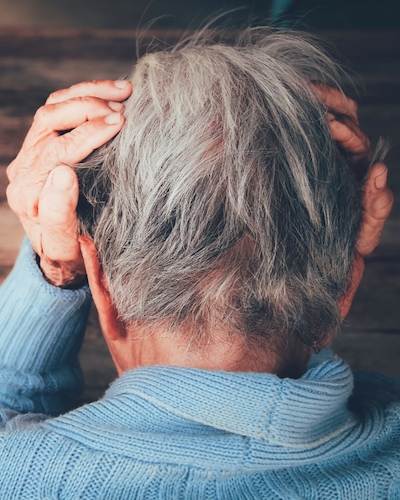
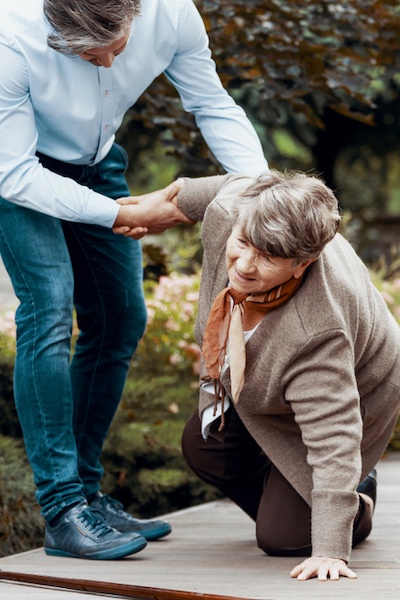
Symptoms of Depression in Elderly People
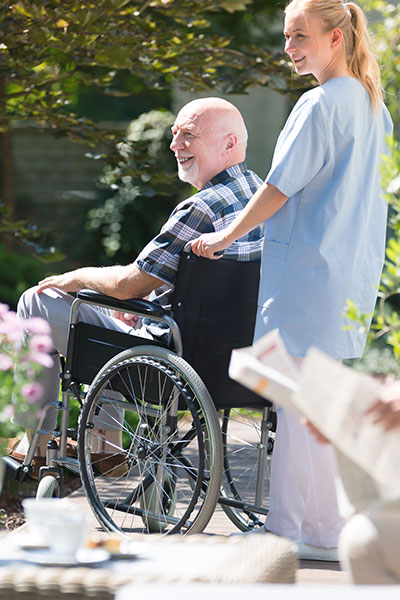
Depression symptoms can look similar, regardless of age. But with the elderly population, there are so many other changes going on that it’s easy to attribute these signs to the general malaise of aging. Keep an eye out for these tell-tale signs:
- Loss of Interest in Hobbies & Favorite Activities
- Unexplained/Worsened Aches & Pains
- Loss of Appetite
- Weight Loss
- Sadness
- Hopelessness or Helplessness
- Sleep Disturbances
- Slowed Speech or Movement
- Memory Problems
- Fixation on Death
- Neglect of Personal Care
While younger people might exhibit more pronounced sadness or suicidal ideations, the elderly community tends to manifest more physical symptoms like neglecting personal care and weight loss. It’s easy to make the assumption that aches and pains are a normal part of aging or that another, previously diagnosed medical condition is the culprit. This is why so many seniors don’t get the treatment they need for depression.
How Common is Geriatric Depression?
The good news is that elderly depression isn’t all that common. The CDC estimates that less than 5% of the total senior population may be affected. But if we look at those who receive home health care or who are hospitalized, that number begins to climb.
And, when researchers dig deeper, they find that a little more than half (52%) of depressed elderly patients have no history of depression or anxiety. This means that depression should be screened for regularly, even in those who have no history of mental health problems. Also, factors like a major chronic illness or hospitalization require a closer watch.
Medical Conditions that Can Lead to Depression
To make matters worse, there are many medical conditions that can lead to depression. And sometimes, simply having a medical condition can intensify depression. Additionally, any condition that is disabling or associated with significant pain or discomfort can make depression symptoms much worse.
Watch for worsening depression if your loved one is diagnosed with:
- Cancer
- Heart Disease
- Stroke
- Thyroid Disorders
- Parkinson’s Disease
- Diabetes
- Dementia
- Multiple Sclerosis
- Vitamin B12 Deficiency
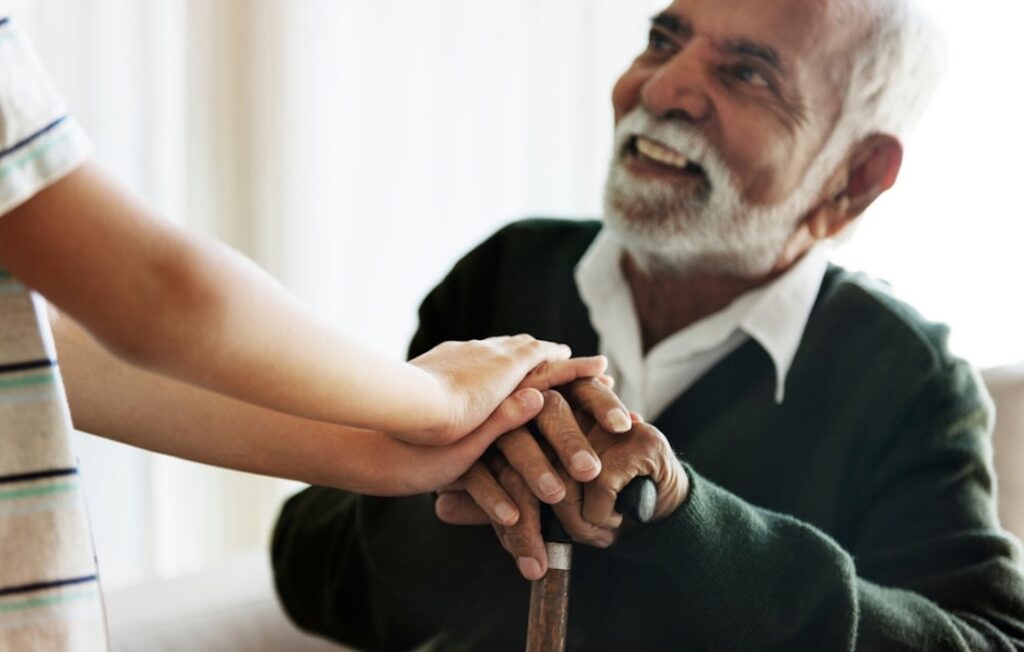
Symptoms of Depression in Elderly People
Once you’ve begun to notice the signs of depression, the next question is – what should be done about it? There are prescription medications, but adding another pill to the regimen for an elderly patient isn’t always the best approach. Here are a few tips for natural solutions that can help alleviate the problem without a prescription.
1. Value Realistic Thinking
2. Put the Situation into Perspective
3. Nurture Your Inner Child
4. Ask for Help
5. Focus on Healthy Habits
First and foremost, depression is often a manifestation of unhealthy lifestyle choices. Take a close look at exercise, socialization opportunities, and diet before you go down the prescription medication route.
If all the healthy habits boxes are checked, then you can start the hard conversations. Be open and allow your aging loved one to be open about their fears as they face their last years. Being realistic about what is coming doesn’t necessarily mean that you need to dwell on the negative feelings.
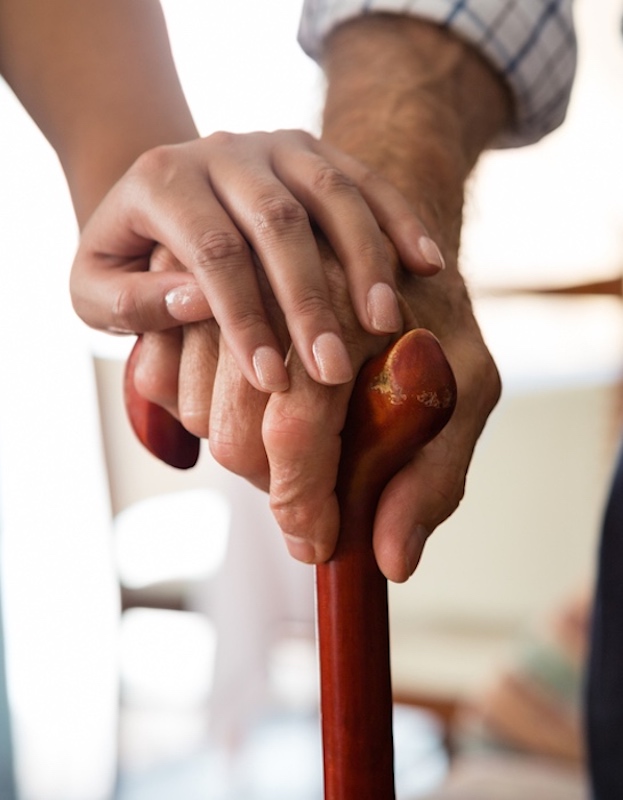
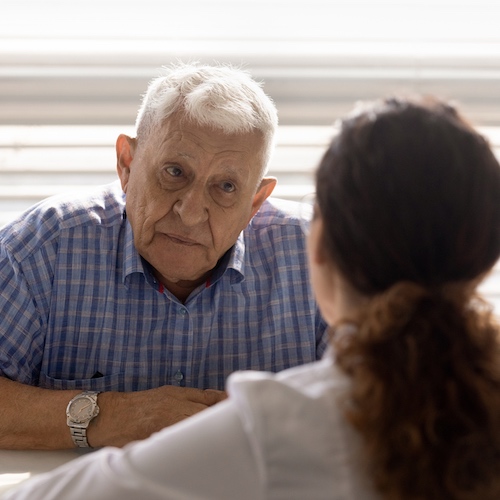
Through these conversations, you can get a sense of the gravity of the problem. Keep in mind that a fleeting dissatisfaction or sadness, lasting two or three weeks, is not necessarily depression. Depression is a diagnosable, treatable medical condition that is persistent and often lasts for much longer.
If you do notice a lot of negative self-talk, now is a good time to remind your aging loved ones to be gentle with themselves. In psychology, we refer to this as nurturing our inner child. Essentially, it means that we remind ourselves of our innocence and treat ourselves a little more kindly.
If the signs of depression are there and these tactics aren’t doing enough to relieve the situation, professional help is always available. The team at Courtyard Gardens can provide exceptional mental health support for our aging residents.
Final Thoughts on Elderly Depression
Depression among senior citizens can be easy to miss. Despite this, it is important to remember that once diagnosed, it’s a treatable condition. Recognizing the signs and providing treatment can significantly improve the quality of life for the elderly. At Courtyard Gardens, we’re focused on providing compassionate care for the physical and mental needs of our residents.

